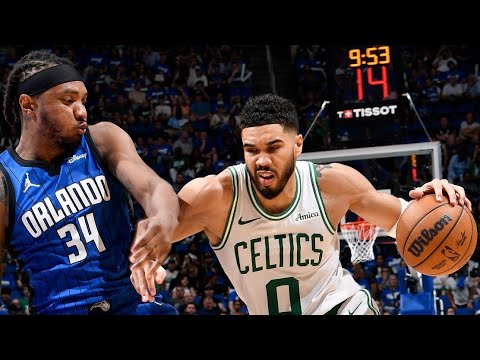The Milwaukee Quandary: Chasing Ghosts with Gold
The Milwaukee Bucks, seemingly perpetually on edge about the loyalty of their superstar Giannis Antetokounmpo, executed a move that can only be described as a masterclass in financial gymnastics. Their decision to waive-and-stretch Damian Lillard, agreeing to pay him a staggering $113 million over the next five years for his services elsewhere, all to clear cap space for Myles Turner, was a bold stroke. One might even call it a swing for the fences, albeit with a rather unique bat.
Turner, a solid professional and a good fit next to Giannis, is undoubtedly a valuable asset. However, describing him as the centerpiece for such an intricate and costly maneuver is akin to buying a very expensive Volvo when what you truly needed was a rocket ship to the moon. The rationale, ostensibly, was to keep Giannis appeased and the team in contention. Yet, paying a former cornerstone millions to not play for you, while simultaneously acquiring a player who doesn’t elevate you into the elite tier of championship contenders, raises a fundamental question: what, precisely, was gained beyond a temporary reprieve from existential dread? The Bucks now find themselves burdened with significant dead money, a considerable handicap in an era where every penny counts, all for a team that, by most objective measures, is a mid-tier Eastern Conference hopeful.
Phoenix`s Burning Embers: A Pyrrhic Financial Victory
If Milwaukee’s move was financially perplexing, the Phoenix Suns` handling of Bradley Beal was a pure financial maneuver, stark in its directness. Paying Beal approximately $100 million over the next five years to play for the Los Angeles Clippers, without directly acquiring any player in return, speaks volumes. The stated goal: immense luxury tax savings, reportedly over $175 million for the current season alone. For an owner who has shelled out astronomical sums in luxury taxes previously, saving a few hundred million dollars might seem like a win. One might even pause to consider the irony of celebrating a billionaire`s cost-cutting when the on-court product appears to be in disarray.
While the financial relief is undeniable, the basketball implications are grim. The Suns had already mortgaged their future, sacrificing numerous first-round picks to assemble their ill-fated “big three.” Now, with Kevin Durant and Beal gone, and a substantial extension for Devin Booker (over $145 million for two years on top of $171 million remaining) on the books, Phoenix appears to be spiraling into a rebuild, despite still having one of the league`s most expensive players. The question isn`t whether they saved money, but what, exactly, that money saved is for, given their depleted draft capital and seemingly aimless roster construction. It’s a sad chapter indeed for a franchise that promised so much.
New Orleans`s Double Down: Draft Day Gambles and Contractual Quagmires
The New Orleans Pelicans delivered a one-two punch of bewildering decisions this offseason, showcasing a peculiar blend of aggressive drafting and questionable contract management. First, their decision to trade an unprotected 2026 first-round pick to the Hawks to move up from 23rd to 13th in the draft to select Derik Queen was a gamble of epic proportions. While Queen is a skilled big man, surrendering an unprotected future first-round pick – particularly one that could be highly valuable given the inherent unpredictability of the league and Milwaukee`s own precarious position – for a player some analysts had projected outside the lottery, is a testament to unbridled optimism, or perhaps, a concerning lack of risk aversion.
Compounding this was their trade of CJ McCollum and Kelly Olynyk for Jordan Poole and Saddiq Bey. While Poole is younger than McCollum, and Bey offers potential as a 3-and-D wing (despite a recent ACL tear), the contractual implications are stark. McCollum and Olynyk’s contracts were set to expire, offering the Pelicans future flexibility. Poole and Bey, however, are on the books for over $40 million in 2026-27. This move, effectively trading expiring deals for longer-term, less impactful commitments, seems to run counter to any logical attempt to “clean up the books.” The Pelicans appear to be drowning themselves in mid-tier contracts, rather than positioning themselves for a future surge. One might say they acquired a pool, only to find it filled with financial quicksand.
Portland`s Costly Mentorship: A Golden Handshake for a Grinding Future
Finally, the Portland Trail Blazers made a move that, on the surface, feels less like a blunder and more like an endearing, albeit fiscally irresponsible, act of appreciation: signing Jrue Holiday to a contract exceeding $100 million over three seasons. Holiday, a two-time champion with his two most recent teams, is undeniably “organizational gold.” His leadership, defensive prowess, and overall professionalism are invaluable, particularly for a young team like the Blazers, featuring talents like Scoot Henderson and Shaedon Sharpe.
The core issue, however, lies in context and cost. Portland is not a championship contender; their 36-46 record confirms that. While Holiday will certainly help them compete for a play-in spot, and his mentorship is crucial, is paying a declining 35-year-old over $100 million to be a “whispering wisdom” on the bench and in the locker room, truly a wise investment? Especially now, with Damian Lillard also back in Portland (albeit potentially sidelined), offering his own brand of veteran guidance. By the time Holiday is 38, the Blazers will be saddled with immense contracts for him, Lillard, and Jerami Grant, while their promising young core will be due for significant raises. It`s a very expensive way to acquire wisdom, and one that severely limits their future flexibility in a highly competitive Western Conference. Sometimes, a golden handshake is just too costly.

